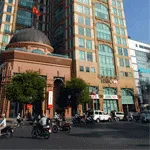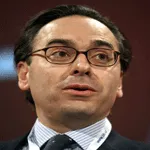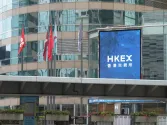Singapore
Moody's says outlook for Australian P&C sector stable
Moody's says outlook for Australian P&C sector stable
Moody's Investors Service says that the outlook for Australia's general insurance industry is stable, but 2009 is likely to prove a challenging year, given the state of the global and local economies.
India Economics
SGlobal growth environment continues to deteriorate
SuperDerivatives reports strong growth in Q4 08 and continuing into 2009
uperDerivatives (SD), the derivatives benchmark, reports significant growth in Q4 of 2008 over the previous year, with 83-percent growth in new customers and renewals in December alone, as demand from institutions in driven by cost control and the need for pricing transparency and accurate risk management in derivatives.
HSBC begins operating as Vietnam's first locally incorporated foreign bank
HSBC has started operating its locally incorporated entity on January 1, 2009. This makes HSBC the first foreign bank to incorporate locally in the fast-growing Vietnamese banking sector after gaining approval from the State Bank of Vietnam (SBV) to set up a Wholly Foreign-Owned Bank (WFOB) in Vietnam in September 2008.Local incorporation will enhance HSBC’s presence as part of its dual growth strategy for Vietnam, comprising strategic alliances and organic expansion. The new entity, HSBC Bank (Vietnam) Ltd., is headquartered at the Metropolitan Building, 235 Dong Khoi Street, in Ho Chi Minh City’s District 1—right in the heart of Vietnam’s dynamic southern commercial hub, along one of its busiest and most well-known thoroughfares. With a registered capital of VND3,000 billion (approximately US$177 million), HSBC Bank (Vietnam) Ltd. is 100-percent owned by The Hong Kong and Shanghai Banking Corp. Ltd.Thomas Tobin, president and CEO of HSBC’s current operations in Vietnam, has been appointed CEO of the new locally incorporated entity. He said: “This is a great milestone for HSBC in Vietnam. It demonstrates the Group’s continued growth in emerging markets and commitment to the development of Vietnam’s financial and banking sector. Despite the turbulent market conditions in 2008, we continue to see the underlying potential of the Vietnam economy, with its dynamic workforce, stable government and rich natural resources. Following the ascension of Vietnam into the World Trade Organisation [WTO], the Vietnamese Government quickly implemented reforms to the financial sector. Our ability to locally incorporate is a tangible example of the Government’s willingness to welcome foreign investment to Vietnam. Operating as a locally incorporated entity will enable us to increase our participation in the country’s fast growing economy and financial markets, utilising HSBC’s international banking expertise and world-class banking services.”On January 1, 2009, HSBC has converted all assets and liabilities of the current operations of HSBC Ho Chi Minh City Branch and certain assets and liabilities of HSBC Hanoi Branch to HSBC Bank (Vietnam) Ltd. As a result, all contracts, accounts and records of its customers, partner banks, suppliers and other parties were automatically transferred to the new Bank. The Bank has taken great care to minimise any disruption to customers.Mr Tobin added: “This is an important landmark achievement in the Bank’s 138 years of history in Vietnam. In recent years, we made great progress in our strategic investments in Techcombank and the Bao Viet Group. Now, local incorporation will give us a wider platform to enhance our scope of services and reach more international and local customers.”In addition to converting its existing operations in Ho Chi Minh City and Hanoi, HSBC also plans to open a new branch in Binh Duong Province soon. Subject to appropriate approvals, seven more outlets will be opened in the country in the first quarter of 2009.HSBC operates one of the largest foreign-owned banks in Vietnam. It also holds 10 percent of the share capital of Bao Viet Holdings, Vietnam’s leading insurer, and 20 percent in Vietnam Technological and Commercial Joint Stock Bank (Techcombank), one of Vietnam’s largest joint stock banks.
Moody's assigns a B1 rating to the Philippines' global bond
Singapore, January 07, 2009 -- Moody's Investors Service has assigned a foreign currency rating of B1 with a positive outlook to the government of the Philippines' forthcoming global bond issuance.
Proposed Acquisition of parts of Credit Suisse’s Global Investors business
Aberdeen Asset Management PLC (‘Aberdeen’ or ‘the Group’) announced its entry into a definitive agreement with Credit Suisse Group AG (‘Credit Suisse’) to acquire certain fund management assets and businesses (‘the Acquired Business’, ‘the Acquisition’), subject to shareholder and certain regulatory approvals.The purchase consideration will be satisfied by the issue to Credit Suisse of amaximum of 240 million new ordinary shares in Aberdeen, equivalent to 24.97 percent of the enlarged Group’s issued ordinary share capital, valued at £250 million based on the Aberdeen closing share price of 104.25 pence on December 30, 2008. The actual number of new ordinary shares to be issued to Credit Suisse will depend on the level of run-rate revenues delivered at the closing of the Acquisition, which is anticipated will take place on, or around, June 30, 2009 (‘the Closing’).The assets under management (‘AuM’) the subject of the Acquisition were CHF75 billion (£40 billion) as at November 30, 2008, with associated run-rate revenues of approximately CHF220 million (£118 million) per annum and were this level of run-rate revenues to be delivered at Closing, the maximum purchase consideration of 240 million new ordinary shares would be payable.The Acquired Business is a long-only traditional asset manager with a leading presence in Europe, Asia and Australasia. It offers a broad product range, diversified predominantly across fixed income, money market and equities, with a variety of investment styles that will be integrated into Aberdeen’s investment processes. Its products are sold primarily to third- party clients, with a significant minority of assets sourced through Credit Suisse’s Private Banking division, one of the world’s largest wealth managers.Aberdeen has agreed an extension of the existing distribution agreement with Credit Suisse, to be signed on Closing. This will give Aberdeen greater access to the banking network of Credit Suisse.
Insurance takeup still driven by long-term wealth goals, says HSBC survey
People in Hong Kong buy life insurance primarily for wealth accumulation, althoughthere is renewed interest in basic protection, according to a survey on Hong Kong’sinsurance market conducted by HSBC.Twenty-seven percent of respondents bought investment-linked policies, up from 21percent in 2007. Nearly half of new life policies (44 percent) sold in the previous 12months were investment-linked products, up from 42 percent in 2007.Penetration into pure and term life insurance increased to 16 percent in 2008 from 12percent. At the same time, the number of new pure and term life policies in the lastyear climbed to 18 percent, from only seven percent in 2007.Bruno Lee, Head of Liabilities Business and Wealth Management for PersonalFinancial Services in Hong Kong, said: “We believe that Hong Kong people willcontinue to look to insurance for long-term savings and wealth growth despite currentmarket conditions. However, low interest rates, market volatility and slowingeconomic growth are likely to result in a potential gap in family protection as networth declines and a need for more basic and affordable protection plans.”When asked for the reasons why they bought insurance, eight in 10 respondents (79 percent)said they bought life insurance to accumulate wealth—as part of a long-term savings,retirement or investment plan. Seven in 10 said they bought life insurance to provideprotection for the family.Mr. Lee added: “People need not abandon their wealth management goals as they waitfor economic conditions to normalise especially for those with a 10- to 30-yearinvestment horizon. Those looking to accumulate wealth long-term may findattractive investment opportunities when the market recovers especially for thoseunder a monthly investment plan. Investment-linked products will continue to beconsidered for long-term wealth accumulation while annuities, also designed toaddress long-term savings objectives are suitable for people who want the dualcushion of future income and protection.Awareness of annuities remains low among Hong Kong people: only 36 percent (vs 38 percent in2007) of respondents saying they knew about them. Only 5 percent of respondents(vs 5 percent in 2007) have taken up annuities in 2008. Potential take-up of annuities in thenext 12 months doubled to 5 percent, from 2 percent in 2008, according to thesurvey.Self-purchased medical insurance holds steadyHSBC’s 2008 Insurance Monitor showed over half (53 percent) of respondents are coveredby self-purchased medical insurance while only one-third (33 percent) are covered bycompany-purchased medical coverage.Lee says: “The steady penetration in self-purchased medical insurance is a positivetrend especially in the current environment. The threat of losing medical coveragedue to job displacement and increasing mobility underscores the importance oftopping up existing company coverage or securing separate medical coverage.”HSBC’s survey shows that over half of the respondents (54 percent) do not have a budgetfor medical expenses in old age. This is especially true among the most vulnerablesegments – singles aged 18-29 years old (61 percent) and those aged 50-64 years old (54 percent).Among those with a budget in mind, over 50 percent believe that medical expenses inold age will cost over HK$1 million.Six in 10 say they will use their savings to cover for medical expenses in old age,while over half (52 percent) say they will rely on insurance protection. Forty-five percentsay they will use public hospitals and one-third (34 percent) will use their investments.One-quarter will use part of the money saved from their MPF (24 percent) or seek helpfrom their family or children (22 percent).However, less than a third (23 percent) of respondents feel that their current level ofmedical protection will be sufficient to cover over 70 percent of their future medicalexpenses, indicating that many perceive a gap in the adequacy of their medicalcoverage in old age. On average, half of the respondents are willing to set aside belowHK$1,000 a month to save for medical expenses in the future.
Moody's places Vesta on Review for Possible Downgrade
Moody's Investors Service announced on January 9 that it has put on review for possible downgrade the Aaa rating of Vesta Investment Corporation Ltd. (Vesta or Issuer). The transaction is originated 50/50 by CapitaLand Residential Ltd., the residential arm of CapitaLand Ltd., and Lippo China Resources Ltd. The transaction is a cross-border securitisation backed by residential unit purchase receivables of two yet to be completed residential projects in Singapore, namely Scotts HighPark and The Metropolitan Condominium. As of transaction closing, 100 percent of the units were sold under a Deferred Payment Scheme.
Western Asset: Economic Growth in Asia to slow in 2009 Despite Support from Chinese Domestic Demand
Western Asset Management, the leading global fixed income manager wholly owned by Legg Mason, Inc., said that continued slowdown in the global economy and the subsequent policy reactions will likely remain the dominant theme in Asia. Growth in China will be an important factor for regional economic performance in 2009 given China’s role as an export market for many Asian countries.
Banyan Tree completes third closing of Indochina hospitality fund
The Board of Banyan Tree Holdings Ltd. (“BTH” and together with its subsidiaries, the “Group”) announced that after the completion of its third closing (the “Third Closing”), Banyan Tree Indochina Hospitality Fund, L.P. (the “Indochina Fund” or the “Fund”) has a total amount of US$268 million in capital commitments from investors. The First and Second Closing The Indochina Fund is a real estate development fund, established by BTH on 29 January 2008, primarily focusing on the hospitality sector in Vietnam and also in Cambodia and Laos. Its principal project is Laguna Hue, an integrated resort development in Central Vietnam. On 28 February 2008, the Group and two Anchor Investors, via a Feeder Fund, committed to invest, in aggregate, US$100 million in the Fund. In July 2008, a number of other investors committed to invest, in aggregate, US$68 million. Accordingly, after the Second Closing in July 2008, the Fund’s total capital commitments reached US$168 million. The Third Closing Demonstrating their commitment to, and confidence in the long term success of, the Vietnamese economy and tourism industry and, more importantly, the Laguna Hue project, the Group and each of the Anchor Investors have increased their respective commitments by US$16.7 million each to an aggregate of US$50 million each. These increases in capital commitments bring the total commitments from the Group and the Anchor Investors (via the Feeder Fund) to US$150 million. In addition, the Fund has also successfully received a commitment of US$50 million from an investor which is to be made via the Feeder Fund. These new commitments bring the total capital raised by the Fund to date to US$268 million. This significant increase in total capital committed means that the Fund is well placed to proceed with the development of the first phase (as described below) of Laguna Hue, without the need to rely on debt financing. Laguna Hue located within an hour’s drive from both the Danang and Hue airports, Laguna Hue envisages the development of seven resorts (including one Banyan Tree resort and one Angsana resort), award-winning Banyan Tree and Angsana Spas, an 18-hole golf course, extensive MICE facilities and retail outlets. Residential villas and apartments will also be available for sale. To enable the core components of an integrated resort to be in place as soon as possible, the first phase of Laguna Hue has been redesigned to comprise the Banyan Tree and Angsana resorts and spas, residences for sale as well as the 18 hole golf course and clubhouse and related infrastructure. This platform is intended to enable Laguna Hue to generate initial cash flows as well and place the Fund in a better position to attract debt/equity financing for the remaining phases of the master plan. Construction of the first phase of Laguna Hue is anticipated to commence in the first half of 2009. Solicitation of further capital commitments The Fund, will continue fund raising activities to seek further commitments from investors by the final closing date which is expected to occur in the first quarter of 2009.
Mauboussin: What biology can teach you about today's market
Michael Mauboussin, Chief Investment Strategist at Legg Mason Capital Management interviews Doug Erwin, a highly respected paleobiologist at the Smithsonian and a member of the Santa Fe Institute’s resident faculty on the parallels between the biological world and the current market.The extraordinary recent market activity and associated discussion prompted me to pose the same questions many are now asking: – What is the role of free markets? – Can overseers structure regulation so as to encourage progress while discouraging poor behavior? – How can we achieve greater stability, provided that is a worthy goal? Like others, I have opinions on these issues. But as these questions rolled in my mind, it occurred to me that we have a similar system — nature — that has been coping with the very same issues for roughly 3 billion years. That is probably sufficient time to allow for some insights.One of the great aspects of an affiliation with the Santa Fe Institute (SFI) is the opportunity to exchange ideas with world class scientists who are self-selected to be curious about the world. Doug Erwin, a highly respected paleobiologist at the Smithsonian and a member of SFI’s resident faculty, is a great example. (Doug’s full biography is at the end of this interview.) While an expert in his field, Doug reads and thinks broadly and can intelligently discuss just about any topic you can think of.So rather than share my views, I thought it would be useful to interview Doug. Note that I lured him into this discussion precisely because he is not a finance expert. That said, the parallels between the biological world he describes and the markets are vivid and provocative. I begin with a summary of our dialogue, then follow with the complete interview.Summary of ideas: – Parallels between reproductive and investment strategies. Doug mentions three reproductive strategies. The first two, the r-selected and the K-selected, are well known. The r-strategy — have lots of offspring and hope for the best — is similar to diversification. The K-strategy opts for fewer offspring but invests much more in each, comparable to constructing a concentrated portfolio. The third strategy, anti-z, was new to me. That strategy seeks to build reserves in good times to allow for better performance in bad times. This is akin to insurance or, in the extreme, strategies that take advantage of fat-tail events (e.g., deep out of the money put and call buying). But, as he mentions, since crises happen infrequently, most species are unable to adapt to the challenging conditions. – Exogenous and endogenous shocks. Some extinctions are the result of exogenous shocks, like an asteroid hitting the earth. Markets have similar events like terrorist attacks or sharp changes in political regimes. But many extinction events arise from the inner workings of the system: pinpointing a specific cause is a challenge. Likewise, in markets most crises are endogenous, not exogenous. The lethal combination of human nature and leverage assure that excesses — both on the upside and downside — occur periodically. Managing the market requires taming human nature. It is unclear any organizational structure has fully succeeded in that task. – You cannot manage a complex adaptive system. By definition, a complex adaptive system has many interconnections. While financiers and politicians seek to help the system, chances are extremely high that any move will have unintended consequences. Biologists have consistently failed to manage systems like national parks and wetlands where the network structure is, if anything, simpler than that of markets. – Surviving the crisis is different than thriving post-crisis. Because ecosystems are rebuilt after a crisis, those species that survive the crisis may not do well after it. Likewise, following a financial and economic crisis the strategies that worked in a prior time may no longer be in favor. Crises close down old opportunities while creating new ones. Participants who can identify and exploit new niches stand to benefit.
Apology to Taishin Financial Holdings from Romesh Navaratnarajah
I Romesh Navaratnarajah sincerely apologise to Taishin Financial Holdings and Mr. Julius Chen for the article titled “Financial scandal rocks Taiwan” which was published in the August/September issue of the Asian Banking and Finance Magazine. I admit and take full responsibility for the below-mentioned facts that were untrue and negative with regards to Taishin Financial Holdings and its previous President, Mr. Julius Chen.
Standard Chartered Bank expands fund services offering
Standard Chartered Bank announced the expansion of its Fund Services coverage to ten full service centre locations throughout Asia including Hong Kong, Singapore, Thailand, Indonesia, China, Philippines, India, Taiwan, Malaysia and Korea. The bank’s core fund services capabilities and activities have also been enhanced with the roll out of new “best of breed” systems for accounting and alternative fund investor servicing. These enhancements provide clients with single and multi-market solutions across an increased product and asset range together with improved local language and customised reporting. Alastair Pow, Global Product Head, Fund Services, Standard Chartered Bank said, “At Standard Chartered Bank we are continuing to invest in expanding our Fund Services capabilities for clients. This year alone our focus on supporting our clients with the solutions and advisory they need has enabled us to grow market share and deliver double digit growth. We will continue to strengthen our strong focus on Asia’s investment industry and to add to our people bench strength. We offer our clients a winning combination of enhanced service capabilities -- our deep regional understanding, local service presence and substantial fund distribution coverage mean that Standard Chartered Bank is uniquely placed to assist our clients to overcome the challenges they now face in growing their businesses in this environment.” Developed for its client base of Asset Managers and Insurance Companies in Asia, Standard Chartered Bank’s Fund Services complement the Bank’s award winning custody and cash services.
Okamura leads UBS Global Asset Management Japan
UBS Global Asset Management Japan appointed Susumu Okamura as president and representative director, effective immediately. Okamura assumes the role from Christof Kutscher, member of UBS’s Group Managing Board and head of UBS Global Asset Management for Asia Pacific, who has concurrently held the position of President and representative director of UBS Global Asset Management Japan since June 2007.Most recently head of the institutional marketing and products for UBS Global Asset Management Japan, Okamura brings a wealth of experience to the role. Before joining UBS in October 2005, he spent 20 years working for Dai-ichi Mutual Life Insurance Company in a variety of senior positions in Japan and the US. In 2000, he was named president and CEO of the US division of DIAM Co., Ltd. In the new role, Okamura will continue report to Kutscher, who will relocate to Hong Kong to focus on his role as Head Asia Pacific.“I am confident that Okamura-san’s experience and wide-ranging knowledge of the funds management industry will provide further momentum to UBS Global Asset Management Japan’s strategy of further enhancing its engagement with Japanese clients while, at the same time, delivering UBS’s global expertise and resources,” said Kutscher.“We have repositioned our Japan business over the past two years; especially our wholesale, mutual fund business which is thriving notwithstanding the difficult market conditions. With Okamura-san at the helm we will provide our clients in Japan with top service and products tailor-made for the Japanese market,” said Kutscher.Okamura received a Masters of Business Administration from Columbia University in 1994 and a Bachelor of Law degree from the University of Tokyo in 1985.
UBS bolsters Asia wealth management team with new hires
UBS Wealth Management announced a series of key strategic hires in Hong Kong and Singapore in its commitment to maintain its market-leading business in Asia Pacific. Adeline Chien joins as a managing director in Hong Kong. Chien, who was at UBS Wealth Management between 1995 and 2004, joins from Goldman Sachs, where she was executive director for Private Wealth Management. She has more than 15 years of experience in private banking and, previously, worked for American Express Bank, Citibank and Chase Manhattan Bank.J P Upadhyaya joins as an executive director in Hong Kong. Upadhyaya joins from HSBC Private Bank where he was senior director and team head covering the Indian diaspora in the region. Before that, he held a variety of senior positions in private and commercial banks including MeesPierson/Fortis Bank and UCO Bank. He has eight years experience in private banking and 20 years in commercial banking.Agnes Kuan joins as an executive director in Hong Kong. For the last 12 years Kuan worked for Merrill Lynch Global Wealth Management, most recently as a vice president and portfolio counselor with the managed products group.Beefing up the team in Singapore are three senior hires, Irene Tan, who joins as a managing director, Jonathan Ng and Ong Lay Khiam who join as executive directors.Irene Tan was executive director at HSBC Private Bank covering South-East Asia clients and has 20 years experience in wealth management having worked with Overseas Union Bank, Credit Agricole Indosuez and Coutts Bank.Jonathan Ng was senior director at HSBC Private Bank responsible for South-East Asia client relationship development. He has 13 years experience in wealth management and previously worked for Credit Agricole Indosuez and Coutts Bank.A veteran corporate banker, Ong Lay Khiam has worked in the banking and finance industry in Singapore since 1971, principally as a commercial banker where he has held several senior positions. These include: vice president of the national banking group at DBS Bank; director and executive vice president at Tat Lee Bank; general manger, corporate banking at Keppel Tat Lee Bank; and executive vice president, at Hong Leong Finance. Ong is an Honorary Council Member of the Singapore Chinese Chamber of Commerce and Industry and an Adjunct Associate Professor attached to the Nanyang Technopreneurship Center of the Nanyang Technological University.“Despite challenging market conditions, UBS continues to focus on enhancing its franchise by selectively hiring experienced bankers. I am confident that the new additions will provide our business with further impetus as we continue to enhance our services into different client segments,” said Kathryn Shih, Head of UBS Wealth Management, Asia Pacific.“Hong Kong and Singapore are key markets for UBS. The arrival of this wave of new talent will not only bolster the high quality of the services we offer but will also underline UBS’s commitment to building its wealth management business in Asia”, she added.All appointments are effective immediately.UBS Wealth Management has in excess of 1,000 client advisors across Asia Pacific – the largest wealth management team in the region.
All Sectors of Asian Local Bonds Look Attractive
Western Asset Management, the leading global fixed income manager wholly-owned by Legg Mason, Inc., said the worst period of risk aversion is over, and that Asian corporate bonds now offer some of the highest current liquidity premiums with the best macroeconomic fundamentals.“All sectors of Asian local bonds look attractive at current levels. Government bonds have rallied but monetary policy will likely remain loose and inflation should be dampened by lower commodity prices and weaker growth. Sovereign and corporate bonds will likely benefit as positions are reallocated between investors. Default rates in Asia remain low whereas the current prices of Asian corporate bonds imply an unprecedented surge in failures over the next few years. This large valuation gap appears to favor investors,” said Rajeev De Mello, Head of Asian Investment at Western Asset.The global fixed income manager points out that Asia is in a much healthier financial position now than it was during the 1997-98 crisis. Countries have substantial foreign reserves and boast strong fiscal positions, companies have more robust balance sheets and banks are far sounder. Monetary policy-makers also have room to reduce interest rates. This gives the region a better position from which to address the global slowdown. Asia will also be a beneficiary of lower food and commodity prices.“Our short-term outlook for currencies is more mixed as certain countries will likely allow their currencies to fall in order to soften the adverse impact on their export markets. However, massive monetary expansion in G3 countries should have an impact on their currencies relative to Asian currencies. Western Asset believes that the expected decline in risk aversion in the next few months will also benefit those Asian currencies specifically hit in the recent months. Over the medium term, Asia is likely to rotate its growth away from the export sector towards domestic sectors. As that happens, the attractiveness of weaker currencies to stimulate growth will diminish. “Therefore we remain positive on Asian currencies in the medium term. We have increased our exposure to corporate bonds and will continue to scale in issues and sectors where we see extraordinary value. With the recent sell-off, Asian corporate bonds currently offer significant opportunities in a range of subsectors and countries,” De Mello concluded.
Valensise: Asia will still offer investment promises
As the credit crunch has had ripple effect across the global economies, global markets have endured dramatic gyrations since this year. While the US and Europe are inevitably facing either a sharp economic slowdown or a recession, Marino Valensise, chief investment officer at Baring Asset Management, believes there are positive structural changes taking place in Asia which will help the region to weather the stormy situation.Valensise comments: “We believe we are seeing the ‘end of the beginning’ of the crisis, with the financial stress leaving space to the problems which “main street” will have to face next, particularly in the US, Europe and the UK.”However, there are still investment opportunities to be found in this environment when you take a longer-term perspective. Asia continues to offer investment promise as personal consumption helps to fuel growth, making the role of the Asian consumer crucial to the world. China is particularly interesting, having fallen around 60 percent since this year. Chinese equities carry attractive valuations and may benefit from decisive action from the Chinese authorities, which may want to support the economy and the markets. Many fiscal and monetary policy options are available to them.Talking about the financial sector, Valensise explains that banks do not trust each other in this environment, and liquidity in the inter-bank market, the credit default swap and over-the-counter markets is dire. He thinks that there is a need for Central Banks to step up to the plate and play a more active role at times like this. By acting as intermediary or guaranteeing all money market flows, where legislation permits, they could bypass concerns about counterparty risk, and keep the economy ticking over until the situation stabilises.Valensise points out that strong leadership and vision has been lacking amongst policy makers. ”The European market could go in the same direction as Japan in the early 90’s unless the ECB moves fast on monetary policy instead of raising the issue of inflation while we all know that inflation will fall down like a stone in the next few months,” says Valensise. In terms of extraordinary measures, Valensise says that European leaders have so far been “missing in action” and more decisive measures are needed.In the current market, there has been a shift in the drivers of equity prices. “In the current environment, fundamental factors do not determine out-performance. Technical factors are increasingly important as debt maturities drive credit and stock performance,” says Valensise. Also, redemptions from hedge funds is putting pressure on stocks in which these funds carried long positions, as they need to raise cash. Similarly, stocks in which they held short positions may benefit. Examples from the recent days are Potash Corp (long) and Volkswagen (short).Marino Valensise will be speaking with Henry Chan, the Head of Asian Investment Team at a Barings conference in Hong Kong on 16 October 2008. They will share their views on the current market situations and investment ideas to help smooth out volatility.















